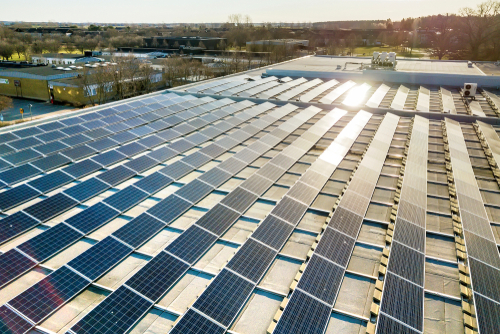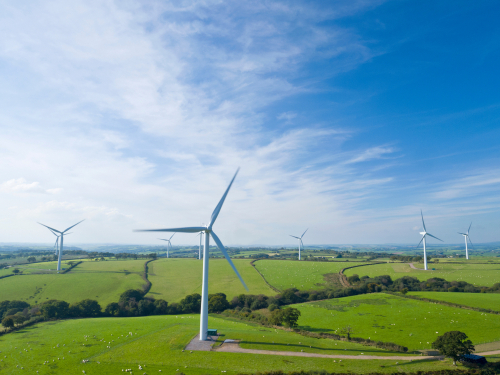Power Purchase Agreements for UK Manufacturers: Benefits & Opportunities
This blog outlines why Power purchase agreements are critical for sectors such as manufacturing.

Power Purchase Agreements for UK Manufacturers: Benefits & Opportunities
Introduction
UK manufacturers face a dual challenge: volatile energy costs and increasing sustainability requirements. Energy procurement is no longer just an operational task — it’s a strategic necessity.
A Power Purchase Agreement (PPA) allows manufacturers to secure renewable electricity at predictable rates for the long term, cutting costs, reducing Scope 2 emissions, and improving energy security. In this article, we’ll explore exactly how PPAs benefit UK manufacturers and why now is the time to act.
1. Long-Term Cost Stability in a Volatile Market
Energy-intensive sectors like manufacturing are vulnerable to price swings. Ofgem data shows UK wholesale electricity prices increased by over 70% between 2021 and 2022.
With a PPA, manufacturers can:
- Fix or cap prices for 10–25 years.
- Budget more accurately, protecting margins.
- Hedge against future market price increases.
By building a long-term energy procurement strategy and securing renewable energy contracts for business, manufacturers can shield themselves from market volatility.
2. Aligning with ESG and Net-Zero Goals
Manufacturers must comply with SECR, TCFD, and soon CSRD reporting requirements. PPAs support:
- Measurable Scope 2 emissions reductions using REGOs.
- Alignment with Science Based Targets (SBTi).
- Improved ESG scoring for tenders and investor relations.
Our guide to Scope 2 emissions reporting outlines how PPAs can directly support achieving net-zero for manufacturers.
3. Energy Security and Operational Resilience
Unplanned outages or energy supply chain issues can disrupt production lines. By securing a renewable PPA, manufacturers can:
- Build energy independence.
- Reduce reliance on fossil fuel imports.
- Pair PPAs with on-site generation for behind-the-meter supply.
Explore our behind-the-meter rooftop PPA solutions to see how they can provide added resilience.
4. Access to Renewable Energy Without Capital Expenditure
Funded PPA models allow manufacturers to transition to renewable power with zero CapEx:
- Panels or turbines installed and maintained by the funder.
- Manufacturer pays only for the power used.
- Savings start from day one.
Learn more about CapEx vs PPA models to see which option best fits your financial strategy.
5. Strengthening Brand Value and Competitive Edge
Deloitte research shows 55% of UK consumers are willing to pay more for sustainable products. Manufacturers can:
- Win more B2B contracts through ESG leadership.
- Differentiate brand in a crowded market.
- Improve employee retention and recruitment.
See how renewable energy for manufacturing can transform brand positioning.
Manufacturing Case Study – EVTEC Group
Sector: Automotive Technology & Energy Infrastructure
Annual Consumption: 33 GWh
Solution: Sleeved Corporate PPA integrating power from a new-build 7 MW solar farm in Bristol, with additional renewable supply sourced via Urban Chain’s private energy market.
Impact:
- Secured 100% renewable supply for the full contracted volume.
- Locked in long-term price stability in a volatile wholesale market.
- Enabled full Scope 2 emissions reduction for contracted electricity, supporting ESG reporting and investor requirements.
- Positioned EVTEC as a sustainability leader in the automotive infrastructure sector, with traceable energy procurement backed by REGOs.
Stephen Todd, Energy Director at EVTEC Group:
“Working with CHGroup allowed us to secure a competitive, traceable renewable supply that meets our operational needs while supporting our long-term sustainability objectives. This PPA gives us stability and a clear ESG story to share with our stakeholders.”
Conclusion & Next Steps
For UK manufacturers, PPAs are not just about lowering costs — they’re about future-proofing operations in a volatile, carbon-conscious world.
At CHGroup, we specialise in structuring PPAs that deliver maximum value, protect against risk, and align with your long-term energy and ESG strategies.
More Blogs
.svg)
Your Questions Answered

With a PPA (Power Purchase Agreement), you pay nothing upfront — the system is funded by a third party, and you buy the energy at a fixed, discounted rate. With Capex, you invest in the system yourself and keep 100% of the savings. We’ll help you compare both and find what’s best for your business.

Yes — and it’s one of the most common cases we support. We offer 100% REGO-backed green tariffs and CPPAs that don’t require solar installation or landlord involvement.

We work on a fully transparent fee structure, either through a disclosed uplift, flat fee, or success-based model. You’ll always know what we earn — and we aim to erase our cost within 6–12 months through price optimisation or generator sourcing.

A green tariff is grid electricity matched with REGO certificates from renewable generators.A CPPA is a long-term direct agreement with a specific wind or solar farm. CPPAs offer price certainty and traceability, while tariffs are short-term and flexible.

Yes. If you own the system (via Capex), we can help you sell your surplus back into the grid — or into our private energy market for better rates.
Still have questions? We're here to help! Whether you're curious about installation, costs, or how solar works, our team is ready to guide
Talk to an expert about your strategy.
.jpg)





.jpg)